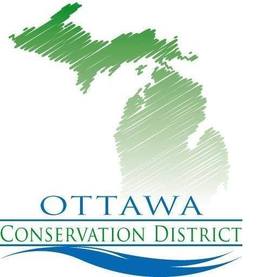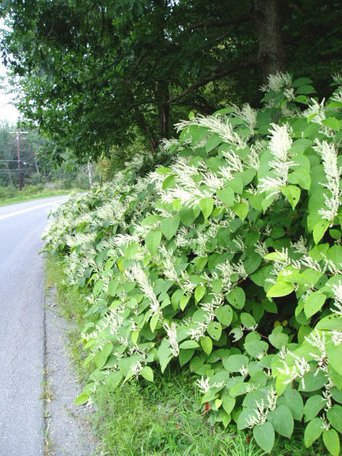 What are Invasive Species?
What are Invasive Species?
Invasive species are defined as non-native plants or animals that can cause harm to the local environment. There are many non-native species that have been introduced to Michigan that do not cause harm, or are a benefit, but invasive species are those that can cause harm to the local environment, economy, and even public health.
The Road Commission is concerned with invasive species because they can often take hold along roadside ditches and shoulders, potentially compromising road drainage and roadway integrity. Invasive plant species usually out-compete native plants and can quickly spread and take over an area. Many invasive species of plants are toxic to animals, including insects such as butterflies, that use plants for reproducing. Once an invasive plant becomes established, it can quickly spread and kill off valuable native plants in the area, disrupting drainage systems as well as the local ecosystem. Because of these reasons, the Road Commission is committed to properly managing invasive species, helping stop their spread and preventing future growth.
Managing Invasive Species on the Roadside.
The biggest hurdle in preventing and managing invasive species is the proper identification and management technique for each species. Traditional methods of managing the roadways, primarily through mowing, will not work for most invasive species. Many require multiple chemical treatments during a specific time of year to fully kill the plant and prevent its regrowth. Since the Road Commission is limited in its knowledge and resources to focus on these invasive species, another solution was needed to help manage them.
The Ottawa County Road Commission’s Solution for Invasive Species Management.
In 2014, the Road Commission began talks with the Ottawa Conservation District about invasive plants along county roads. After identifying several areas that required treatment, the Road Commission and the Ottawa Conservation District formed an agreement that has been renewed for the last three years.
This partnership gives the Ottawa Conservation District permission to identify and treat areas with invasive plant species along roads that the Road Commission manages. The Conservation District can then acquire grant money that’s available to combat invasive species. This program helps save the Road Commission money and resources in managing the plants in the right-of-way, and it also allows the Conservation District to eradicate plants on the roadsides before they can spread to other areas.
Invasive Species Management in Ottawa County.
The Ottawa Conservation District identified four invasive species that they would look for and treat along county roads. They are: Japanese Knotweed, Phragmites, Chinese Yam, and Black and Pale Swallow-wort. All these plants have been identified at the state level as being invasive species that cause harm to the environment.
The most prevalent, and probably most dangerous, invasive plant species in Michigan, and in Ottawa County, is the Japanese Knotweed. This plant is known to have established itself in Michigan. It is very aggressive and because of its size and chemical composition it can quickly and easily out-compete native species. It is toxic to animals and humans. One of the biggest concerns with knotweed is that through its aggressive growth and extensive root system, it can cause damage to buildings, sidewalks, and roads.
Knotweed is very resilient and difficult to kill. In fact, mowing it, especially at certain times of the year, can help spread its growth. It requires specific herbicides and multiple treatments before it can be mowed. Since the Ottawa Conservation District has the knowledge and resources to manage knotweed, they have been a big benefit to managing knotweed along county roads.
Because of the prevalence and threat of invasive species, the Road Commission needed a more comprehensive plan to manage invasive species along county roads. Partnering with the Ottawa Conservation District has proven to be successful and beneficial for both parties and for the residents of Ottawa County.
You can find out more information about the Ottawa Conservation District by visiting their website: http://www.ottawacd.org. To learn more about invasive species in Michigan you can visit: http://www.michigan.gov/invasives/. If you think that you may have Japanese Knotweed or any other invasive plant on your property, be sure to contact the Ottawa Conservation District to learn about management options.

